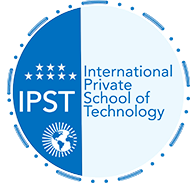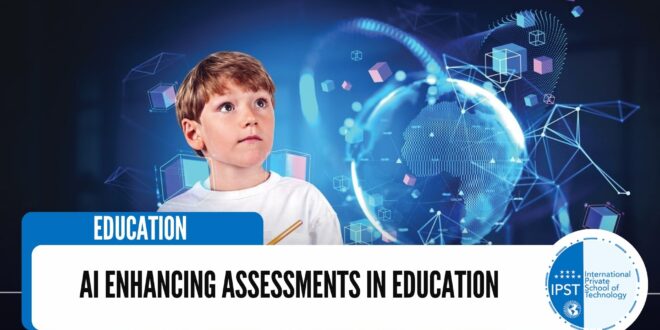In the era of rapidly advancing digital education, assessments have become an integral part of the educational process. They serve as one of the foundational tools for institutions to measure students’ progress and understanding of the content. With the increasing use of technology in education, Artificial Intelligence (AI) has started to play a pivotal role in enhancing the quality of assessments and exams, contributing to a better learning experience. In this article, we will explore how AI can improve assessments and exams in digital education and how it can enhance the accuracy and efficiency of evaluations.
1. Enhancing Personalized Assessments with AI
One of the most prominent uses of AI in digital education is personalized assessments. AI can analyze student performance based on their responses in tests and assignments, then provide assessments tailored specifically to each student’s needs and learning style. For example, AI can identify the strengths and weaknesses of a student in various topics, allowing for personalized feedback that helps students improve skills in areas that need strengthening.
Source: EdTech Magazine – How AI is Enhancing Personalized Learning and Assessment
2. Real-Time Interactive Feedback
One of the significant benefits of AI in assessments is the ability to provide real-time feedback. In traditional exams, students have to wait for the teacher to grade their work, which can slow down the learning process. However, with AI, students can receive immediate feedback on their performance, along with direct explanations of the mistakes they made. This instant feedback greatly enhances the learning process, enabling students to adjust their strategies and correct errors in a timely manner.
Source: The Chronicle of Higher Education – Real-Time Feedback and AI-Driven Assessments in Education
3. Improving Multiple-Choice Assessments and Evaluative Content
A common challenge in digital education is creating assessments that truly measure students’ understanding of the content, especially in multiple-choice tests. By leveraging AI, the accuracy of evaluating these assessments can be improved. AI can deeply analyze incorrect answers and identify patterns that suggest a student did not grasp core concepts, even if they selected the correct answer in the end. This way, the assessment becomes more accurate in measuring the depth of a student’s understanding of the material.
Source: Forbes – How AI is Transforming Online Assessments and Exams
4. Automating Grading of Tests
A clear advantage of using AI in assessments is the ability to automate the grading process. While manual grading can be time-consuming, AI can process data faster and more accurately. Moreover, AI can be used to grade open-ended questions such as essays and research papers. Machine learning techniques can help teachers analyze texts objectively and precisely, saving time and allowing them to focus more on teaching.
Source: Edutopia – AI and the Future of Grading: Improving Efficiency and Accuracy
5. Detecting Cheating and Fraud in Exams
One of the significant challenges in digital assessments is cheating and fraud. AI can play an important role in minimizing these risks. By analyzing answer patterns, AI can detect inconsistent or illogical responses that may indicate cheating. It can also monitor student behavior during online exams to identify unusual actions, helping ensure the integrity of the assessments.
Source: The World Economic Forum – Combating Cheating in Digital Assessments through AI
6. Continuous Assessment and Adaptation to Student Progress
By utilizing AI, assessments can be improved through continuous evaluation rather than relying on traditional mid-term or final exams. AI can track a student’s progress throughout the course and provide updated assessments that reflect how the student is developing their skills over time. These continuous assessments help create a more accurate and comprehensive picture of a student’s level, allowing for more effective educational decisions.
Source: The Education Commission – Continuous Assessment with AI: A Future of Learning
7. Challenges in Using AI for Assessments
Despite the numerous benefits AI offers in improving assessments, there are some challenges that may hinder its widespread adoption in digital education. Some of the main challenges include:
- Training for Tool Usage: Teachers may require specialized training to use AI tools effectively for assessing students.
- Privacy and Data Protection: The use of AI requires the collection and analysis of personal student data, raising concerns about privacy protection.
- Over-reliance on Technology: Excessive dependence on AI could reduce personal interaction between the teacher and student, potentially impacting the quality of education.
Source: Edutopia – Challenges of AI in Education and Assessment
Conclusion
Artificial Intelligence is a powerful tool in improving the quality of assessments and exams in digital education. By providing personalized assessments, real-time feedback, automating grading, and detecting cheating attempts, AI can bring significant changes to how student progress is measured. While there are challenges that need to be addressed, the potential of AI in enhancing the accuracy and efficiency of assessments will contribute to a more effective and inclusive learning experience for all students.
Sources:
- EdTech Magazine – How AI is Enhancing Personalized Learning and Assessment
- The Chronicle of Higher Education – Real-Time Feedback and AI-Driven Assessments in Education
- Forbes – How AI is Transforming Online Assessments and Exams
- Edutopia – AI and the Future of Grading: Improving Efficiency and Accuracy
- The World Economic Forum – Combating Cheating in Digital Assessments through AI
- The Education Commission – Continuous Assessment with AI: A Future of Learning
 International Private School of Technology المدرسة الدولية الخاصة للتكنولوجيا Private School مدرسة خاصة للتكوين المهني
International Private School of Technology المدرسة الدولية الخاصة للتكنولوجيا Private School مدرسة خاصة للتكوين المهني


